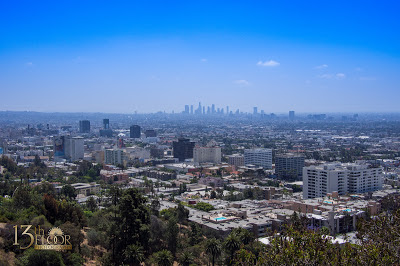Important Notes:
1. This is a user based review with no lab or scientific testing
2. All images are post processed in lightroom 4 according to personal taste/preference
3. Images were taken in Raw and converted to JPEG
4. Feel free to ask questions in comments
 |
| Runyon Canyon - Hollywood, California |
I've been having a lot of fun photographing my hikes with friends and family. With the micro four-third systems being so portable, I found the process extremely fun and the least bit distracting (not once did I think the camera got in the way or made traversing the path difficult). I opted to take the olympus OMD without the external grip and the Panasonic 20mm f1.7. I honestly forgot about the lens ever since I purchased the Panasonic 25mm f1.4, but I wanted to to go extremely compact and decided to dust off my very first lens and take it out for a hike.
 |
| Entrance to Runyun Canyon |
Size - The first thing I immediately noticed was how small the lens is especially on the OMD. I immediately did the pocket test and it easily passed with flying colors (tested with cargo shorts), though I would never hike with it in my pocket. It was most definitely a welcome companion that did not hinder my experience during the hike. No complaints here.
 |
| Bauer free to roam the canyon |
Focusing/Auto focus (AF) - I've been very spoiled in this department because of my experience with Olympus m43 primes. The AF was not abysmally slow, but it wasn't lightening quick like the Panasonic 25 f1.4 or even the Olympus 12mm/45mm. I wanted to see how well it would perform under single AF on a fast moving object like the wonderful Bauer (pictured above) and to my surprise, it held its own. It focused where I wanted to and came out extremely sharp.
On a personal level, the manual focus by wire is the only thing that I can't stand about this lens (and that's with most m43 lenses with the exception of certain Oly glass). This means the focus mechanism is not mechanically tied to the lens, rather electronically. Any movement on the focus ring is measured by the camera's software, so the ring can and will turn endlessly. Not having a distance scale or an indicator of where infinity is makes manual focusing somewhat difficult but not impossible. It's a minor gripe that I can live with.
 |
| Panasonic 20mm f1.7 - shot at f2.8 |
 |
| Panasonic 20mm f1.7 - shot at f5.6 |
Bokeh - The bokeh or out-of-focus blur on this lens is nice and creamy. With wider lenses like the 20mm, you either need to shoot wide open at f1.7, distance your subject from the background and/or get personal with subject in order to get the desired subject isolation with this glass. Overall, I have no complaints in the bokeh department.
 |
Clarity and Sharpness - The biggest selling point, besides its size, is that the lens produces such clear and sharp images. Although I do not have scientific charts or tests to truly determine how great this lens is (nor do I care for it), I would say that it gives its bigger brother, the Panasonic 25mm f1.4, a run for its money. When I purchased the 25mm, I had expectations that it would deliver images FAR greater than the 20mm and in my eyes it really didn't.
I have also heard reports of the 20mm having banding issues when paired with the OMD under high ISO conditions. I have yet to test it, so I can't report on this nor take away points from the glass.
 |
| Our very own Director of IT, Jason Aranda - hike leader for the day |
I have read several forum posts and discussions regarding this Panasonic lens and the 25mm f1.4. Given that image quality is about the same (with a slight advantage going to the 25mm) and field of view being immaterially different to me, here's my 2 cents: If portability and price is extremely important to you, the 20mm wins hands down. Because I place greater value in autofocus speed and low-light performance (without the risk of banding at higher ISOs), I would purchase the 25mm over the 20mm even if it means spending a bit more money.
The second part of this review will be based on my experience using this lens on a Panasonic body, specifically the GF-1. Thanks for stopping by. Feel free to ask questions down in the comment section.
So say we all,
Dino



No comments:
Post a Comment